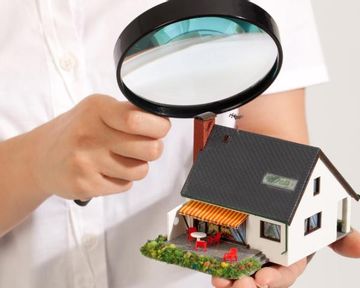Boost Your Home's Appeal and Sell Faster with Home Staging
In the ever-competitive real estate market, selling your home quickly and at the best price possible is a top priority for most sellers. One strategy that has gained significant traction in recent years is home staging.
Why Home Staging Matters
Before diving into the specifics of home staging, let's understand why it matters. The ultimate goal for sellers is to sell their homes swiftly and profitably. Home staging is a powerful tool in achieving this goal. At its core, home staging involves preparing your home to be listed by enhancing its appeal and transforming it into an attractive and inviting space.
Creating Aspirations with Home Staging
Think of home staging as the real estate equivalent of a retail shop's display window. Just as a well-curated display entices shoppers by allowing them to imagine themselves using the showcased products, home staging enables potential buyers to envision themselves living in your home. It creates aspirations and emotional connections.
Professional Home Staging vs. DIY
Whether you opt for professional home staging or decide to tackle it yourself, there are options to suit various budgets. If cost isn't a concern, enlisting the expertise of a knowledgeable staging specialist is a valuable investment. Professionals can arrange for furniture or artwork rentals, address any necessary repairs or improvements, and provide expert guidance.
For those on a tighter budget, there are numerous resources available, including websites, television shows, and magazines, to help you get started with DIY home staging. The key is to make your home clean, inviting, and exciting for potential buyers.
How to stage your home yourself
1. Declutter and Create Space
One of the first steps in preparing your home is to declutter and pack away unnecessary items. Buyers should focus on the space itself, not your personal belongings. Cluttered rooms can feel smaller and overcrowded, which isn't appealing. Aim to reduce your home's contents by about half. Consider renting a storage unit to store items you want to keep but don't want in the house during the selling process.
Aside from improving the sense of space, having fewer items makes it easier to maintain cleanliness. Professional carpet cleaning and curtain washing can freshen up your home, and fresh or new bedding can enhance the bedrooms.
2. Appeal to the Senses
Don't overlook the power of sensory appeal. The way your home smells can significantly impact a buyer's impression. Pleasant aromas, like freshly brewed coffee or baked bread, can evoke positive emotions. On the contrary, bad odors can deter potential buyers. Ensure your home smells inviting during showings.
3. Maximize Natural Light
Openness and brightness can make a significant difference in how buyers perceive your home. Keep curtains or blinds open to maximize natural light, and turn on lights to brighten rooms. Well-lit spaces feel more inviting and spacious.
4. Small Touches, Big Impact
Sometimes, small, well-thought-out changes can make the most significant impact. Consider adding fresh flowers, a welcome mat, or a bowl of fresh fruit in the kitchen. These simple touches add to the overall appeal of your home and leave a lasting impression on potential buyers.

